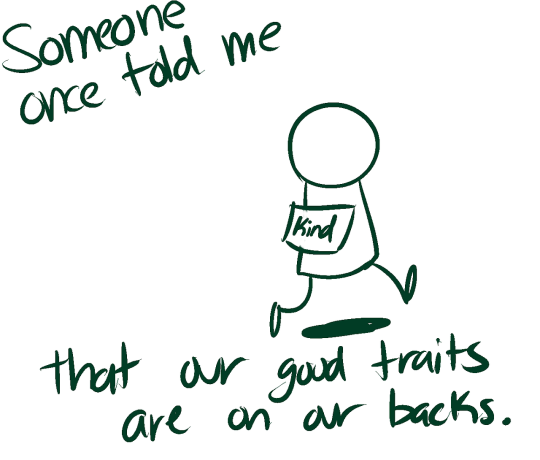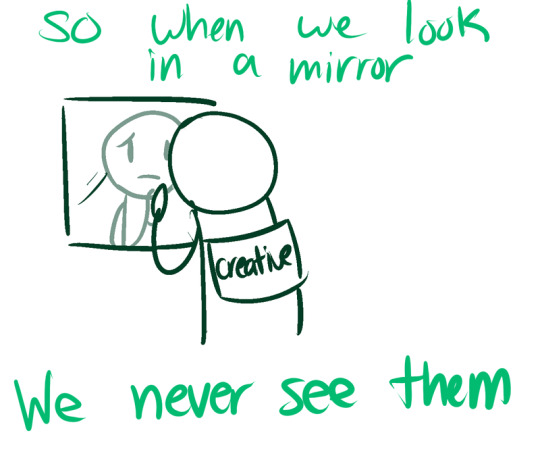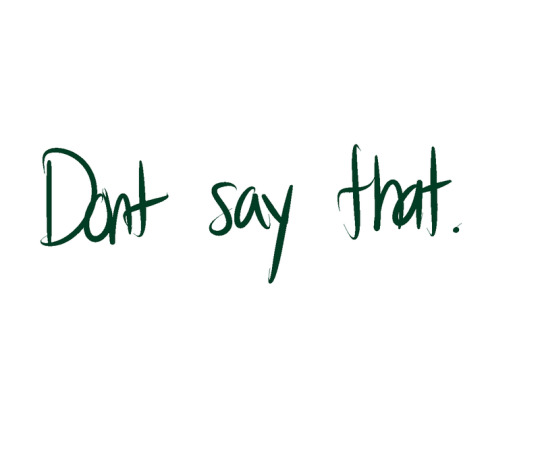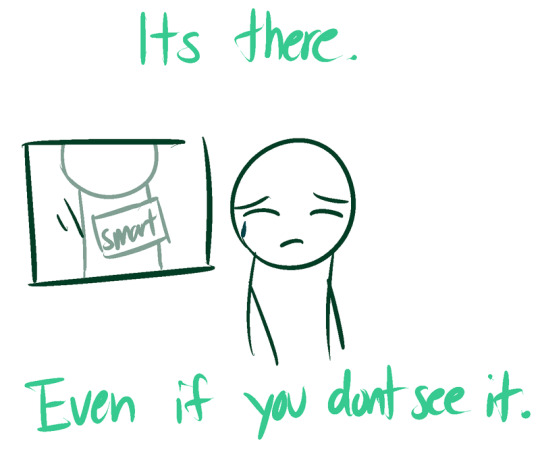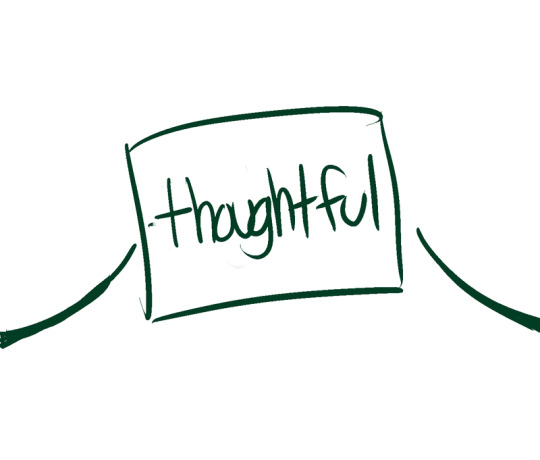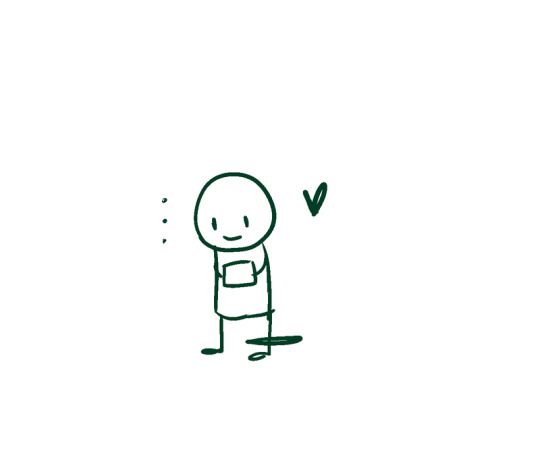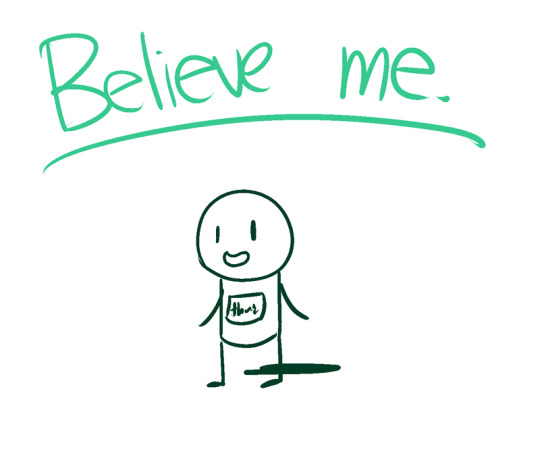Quote
“You've gotta dance like there's nobody watching, Love like you'll never be hurt, Sing like there's nobody listening, And live like it's heaven on earth.”
William W. Purkey
#william w. purkey#qutoeoftheday#music#dance#sing#dancing quotes#life quotes#life#quoteoftheday#life quote#daily post#daily quotes#world#heaven#love#love quote tumblr
8 notes
·
View notes
Quote
I love you not because of who you are, but because of who I am when I am with you
Roy Croft
#i love you#qutoeoftheday#life qoute#love#love quote tumblr#love quotes#life#life quotes#quoteoftheday
6 notes
·
View notes
Text
Cheat Sheet for Writing Emotion
Anger:
Grinding teeth
Narrowing eyes
Yelling
A burning feeling in the chest
Heavy breathing
Unjustified or justified accusations towards other characters
Jerky movements
Glaring
Violence
Stomping
Face reddening
Snapping at people
Sadness:
Lack of motivation
Messy appearance
Quiet
Slow movements
Crying
Inability to sleep
Frowning
Red eyes
Isolating oneself
Fatigue
Not concentrating
Love:
Thinking about someone
Good communication
Not forcing a friend/lover into something
Smiling randomly
Making eye contact with loved one
Nervous behaviors (fiddling hands, biting lip)
Cuddling
Flirting
Inside jokes
Holding hands
Kissing
Offering gifts
Fluttering stomach
Racing heart
Losing track of time while with loved one
Daydreaming
Denial:
Disagreement with someone
Shaking head frantically
Backing away
Putting hand on one’s chest
Rapid speaking
Rationalization or justifying something
Dismissing someone or something
Embarrassment:
Blushing
Avoiding eye contact
Grimacing
Looking down
Changing the conversation
Rubbing back of neck
Shoulders slumping
A weak voice
Tightening chest
Panicked thoughts
Running away
Getting quiet
Concentrating on something else
Happiness
Smiling
Laughing
Squealing
Bouncing on toes
Warmth in chest
Fast pulse
A sense of contentment
Relaxed posture
Quick movements
Breathlessness
Desire to help
Fear:
Face going pale
Panicked thoughts
Jerky movements
Mind racing for a solution
Running
Freezing
Fighting
Fawning (doing what people tell you to do)
Side note: flight, fight, freeze, and fawn are all reactions to adrenaline. Aka the fight or flight response
Thinking of survival
Rapid breathing
A panicked feeling
Guilt:
Feeling horrible about oneself
Lying
Grimacing
Trying to redeem themselves
Asking for forgiveness
Anxious thoughts
46K notes
·
View notes
Text
Question Words in Korean
어떻게 - How
얼마(나) - How much, How many
뭐 - What
무엇 - What
무슨 - What, Which
어떤 - What kind of
언제 - When
어디 - Where
어느 - Which
누구 - Who
왜 - Why
2K notes
·
View notes
Text

Hey guys, I wanted to get a post up for the first time in a while. And what better topic than my own emotions~ Here are some important and basic 감정 (emotions) in Korean.
행복하다 To be happy —> 덕분에 오늘 정말 행복했어. 고마워. Thanks to you, I was really happy today. Thank you. // 행복한 하루였어. It was a happy day.
슬프다 To be sad 슬픈 영화를 좋아해요. I like sad movies.
신나다 To be excited (Used when you’re excited about something like going on vacation or dancing or something that makes your heart race!) —> 신나는 노래가 좋아요. I like exciting songs. // 내일 방학이라서 너무 신나! I’m so excited that tomorrow is vacation!
기쁘다 To be happy, pleased, glad —> 내가 준 선물을 좋아해서 나도 기쁘다. I’m so glad that you like the present I gave you.
외롭다 To be lonely —> 혼자서 살아서 외로워요. I’m lonely because I live alone.
화나다/화내다 To get angry (화나다 is used just to express anger that is currently being felt. 화내다 is used to describe an outward expression of anger. So, when you show your anger.)
그 때 진짜 화났다. I was so mad then.
화나? Are you mad? (getting mad)
화내지 마. Don’t get mad (at me).
화내면 안 돼요. I can’t show them I’m mad./You can’t show them you’re mad.
짜증나다 To be annoyed or irritated (짜증 means annoyance/irritation and 나다 means to appear. So, this word expresses the appearance of irritation.)
사람이 길거리에서 쓰레기를 버릴 때 너무 짜증나요. It’s so annoying when people throw garbage away on the street.
답답하다 To be stuffy, suffocating (This word is described in Korean as being stuffy to the point it’s hard to breathe, but it can often be compared with the English word frustration when used as an emotion. It’s like an emotional blockage where you can’t get relief for your frustration and your chest feels tight.)
아무리 많이 설명하더라도 남자 친구가 내 마음을 이해 못해. 아아 너무 답답해. No matter how much I explain myself, my boyfriend can’t understand me. It’s so frustrating.
부럽다 To be envious (This word translates to envious but is used that way “jealous” is used in light situations.) —> 우와아 부모님이 용돈을 주셔서 너무 부럽다! Woah, I’m so jealous your parents give you allowance.
걱정되다/걱정하다 To be worried/to worry (걱정하다 is used to refer to something that you are actively worrying about, normally at the time you’re talking about it or in the past. 걱정되다 refers to more passive worries or something that is worrisome, but not necessarily keeping you up at night.)
오늘도 많이 안 먹었어? 걱정되네. 무슨 일 있어? You didn’t eat a lot today either? That’s not good./That’s worrisome. Is anything going on?
어제 연락이 없어 가지고 걱정했거든! 무슨 일 생긴 줄 알았어. I didn’t hear from you yesterday, so I worried, you know! I thought something happened.
걱정하지 마. 괜찮을 거야. Don’t worry. It will be okay.
심심하다 To be bored (This is to be bored because you have nothing to do. It’s not to be bored because something is uninteresting. I don’t think it’s an emotion, but it’s definitely a feeling!) —> 할 게 없어서 심심해요. I’m bored because I don’t have anything to do.
부끄럽다 To be embarrassed (It’s also translated to ashamed, and it can have a bit of that feeling, but it’s normally not nearly as strong as the English word. It’s normally used to mean “ashamed” when someone is making a rather formal apology, think like a politician or someone who did something wrong and was caught.)
그쪽의 이름을 깜빡해서 부끄럽네요. I’m embarrassed that I forgot your name.
너무 부끄러웠어요 ㅠㅠ I was so embarrassed.
어색하다 To be awkward —> 분위기가 너무 어색해서 불편했어요. The atmosphere was so awkward that I felt uncomfortable.
I hope this helps you on your way to expressing how you feel! Good luck studying everyone.
Follow me for Korean lessons and tips.^^
309 notes
·
View notes
Text
Korean Learning Resources
Posts:
Just Started Learning Korean? Here’s What You Can Expect
Free Textbook PDFs:
Beginning Korean: A Grammar Guide
Basic Korean: A Grammar and Workbook
My Korean 1 and Audio Files
My Korean 2 and Audio Files
Essential Grammar For Korean as a Second Language
Websites:
https://www.viki.com/ - website that helps you learn Korean through K-dramas. Includes learning mode to help you understand vocabulary and grammar
Learn Korean Through K-Pop - website that helps you learn Korean through popular k-pop songs. Also includes quizzes and breakdown of grammar and vocabulary.
Learn Korean.Net - Korean learning website with free lessons
Talk to Me In Korean - Largest learning site for beginners
Korean Wiki Project - Wikipedia type resource for everything you need to know about Korean
r/Korean - Korean reddit page for you to ask questions and gather resources
Where To Learn About:
Correct Pronunciation
Politeness Levels
Idioms
The Hangul Alphabet
The Numbers System
Apps:
Hello Deer: App Store / Google Play
Seemile: App Store / Google Play
Memrise: App Store / Google Play
Innovative Language 101: App Store / Google Play
Chat to Learn Korean - Eggbun: App Store / Google Play
PopPopping Korean – Pronunciation: App Store / Google Play
TOPIK ONE: App Store / Google Play
Learn Korean - WordPower: App Store / Google Play
HelloTalk Language Exchange: App Store / Google Play
TenguGo Hangul: App Store / Google Play
Naver Korean Dictionary & Translate: App Store / Google Play
Learn Korean - Bravolol: App Store / Google Play
Duolingo: App Store / Google Play
366 notes
·
View notes
Text
Essential Vocabulary to remember
There are so many words in Korean, however, it is very hard to remember all of them. This is a list of words that I think are essential and that I should always remember. To memorize them just read this everyday. I’ll be adding more whenever I find new words, so keep checking this post for updates. Feel free to use this as a reference as well!
Greetings + Farewells:
안녕히 가세요: Good-bye! (to one who is leaving). Tip: 가 means go.
안녕히 계세요: Good-bye! (to one who is staying).
수고하십니다: Hello! (to someone working)
수고하세요: Good-bye! (to someone working)
수고하셨어요: Thank you for helping me or Well done!
여보세요: Hello! or Hey there! (Hello on the telephone, or when peering into a dark house. Also means Look here!)
만나서 반갑습니다: Nice to meet you; nice to see you.
처음뵙겠습니다: Pleased to make your acquaintance.
또 뵙겠습니다: See you later! (Formal).
또 봐요: See you later! (Polite).
어서 오세요: Welcome!
들어 오세요: Come in!
앉으세요: Please take a seat/sit down.
어떻게 지내세요?: How are you doing?
잘 지내요: I am fine.
그저 그래요: So-so.
모든 것이 괜찮습니다!: It’s all good!
이름이 뭐예요?: What is your name?
성함이 어떻게 되서요?: What is you name? (Formal)
어디에서 오셨어요?: Where are you from?
나는 (insert country here) 사람이에요: I am (insert country here) person.
나 는(insert country + 에) 살고 있습니다: I live in (interest country here).
Apologies:
실례햅니다: Excuse me (for what I’m doing).
실례했습니다: Excuse me (for what I did).
실례하겠습니다: Excuse me (for what I’m about to do).
미안합니다 or 죄송합니다: I’m Sorry or Excuse me.
아니오, 괜찮아요: Not at all, it’s alright; No, thanks.
Thank you + No problem
고맙습니다: Thank you.
감사합니다: Thank you.
천만에요 or 뭘요: You’re welcome! or Don’t mention it!
Good to remember if you’re ever speaking to a Korean person:
듣기만 하세요: Just listen , please.
따라 하세요: Please repeat (after me).
다 같이: All together.
다시 한번: One more time.
말하세요: Please answer.
다시 말씀해 주세요: Please say it for me again. Please repeat.
크게 말씀해 주세요: Please say it loudly.
천천히 말씀해 주세요: Please say it slowly.
한국말로 하세요: Please say it in Korean.
영어로 하지 마세요: Please don’t say it in English.
알겠어요?: Do you understand?
네, 알겠어요: Yes, I understand.
아니오, 모르겠어요: No, I don’t understand.
질문 있어요?: Any questions?
네, 있어요: Yes, I have/Yes, there are.
아니오,없어요: No, I haven’t.
십 분만 쉽시다: Let’s rest for ten minutes.
늦어서 죄송합니다: Sorry I’m late.
“Insert word here” 한국어로 뭐예요?: How do you say “insert word here” in Korean?
“Insert Korean word here” 이라고 해요: You say “insert Korean word here.”
이 게 뭐예요?: What is this?
이 건 제 거 예요: This is my thing.
그 건 제 거 예요: That is my thing.
(Insert name here)는 어디에 있어요?: Where is (insert name here).
제 (Insert object name here)이 어디에 있어요?: Where is my (insert object name here).
화장실이 어디에 있어요?: Where is the toilet?
저는 돼지고기가 안 먹어요: I don’t eat pork.
저는 돼지고기가 못 먹어요: I can’t eat pork.
Ways to connect sentences:
그래서: And so…, And then…, Therefore…
그래도: Even so…, Nevertheless
그리고: And also…, And then…
그런데: But…, And then…, By the way…
People:
교수(님): Professor (honorific)
선생(님): Teacher (honorific)
박사(님): Dr., Ph.D (honorific)
외교관: Diplomat
사람: Person
아내 or 집사람: Wife (my)
부인: Wife (your/his)
남편: Husband
친구: Friend
학생: Student
가수: Singer
씨: Polite title for name
어머니: Mother
아버지: Father
부모(님): Parents (honorific)
아이 ~ 애: Child
아기 ~ 애기: Baby
아저씨: Mister (way of referring to or addressing a man old enough to be married).
아가씨: Young Lady (way to referring to or address an unmarried young woman).
남자: Man
남자친구: Boyfriend
여자: Woman
여자친구: Girlfriend
Things or objects:
제폼: Manufactured good(s)
수입폼: Imported goods
신문: Newspaper
잡지: Magazine
책: Book
공책: Notebook
분필: Chalk
연필: Pencil
볼펜: Ball pen
펜: Pen
종이: Paper
칠판: Blackboard
우산: Umbrella
성냠: Matches
담배: Cigarettes
전부: The whole thing, total
다: All, everything
전부다: Everything, all of it
말: Language, words
책상: Desk
상: Table
그림: Picture
의자: Chair
창문: Window
문: Door, gate
나무: Tree
가방: Bag, briefcase
Places:
집: House, home
학교: School
대학교: University
교실: Classroom
방: Room
서점: Bookstore
기숙사: Dormitory, residence hall
학생회관: Student union [building]
회장실: Toilet, restroom, bathroom, washroom
대사관: Embassy
영사관: Consulate
건물: Building
시청: City Hall
공원: Park
들판: Field
백화점: Department Store
시장: Marker
정문: Main gate (e.g., of a university)
근처: Vicinity
가게: Shop, store
역: Train station
차고: Garage
여기: Here
거기: There
저기: Over there
어디: Where
Other Items:
얼마: How many? How much?
천: Thousand
원: Korean money unit
돈: Money
바로: Just, right (below, above, etc.), straight (adverb)
있어요: It exists, there is/are
없어요: It does not exist, there is not/aren’t
주세요: Please give
Miscellaneous Vocabulary:
나: I
우리: We, our
누가: Who? (as subject)
누구: Who? (non-subject)
무엇, 뭐: What?
아니에요: No; it is not
그렇지만: But
그러면: Then, in that case, if so
그럼: Then, in that case
이 NOUN: This NOUN
그 NOUN: That NOUN
저 NOUN: Yon NOUN, That NOUN [way] over there
무슨 NOUN: Which/what kind of NOUN?
어느 NOUN: Which/what (one/NOUN)?
곳: Place
분: Person (honorific)
Place Nouns:
안에: Inside (안 tends to mean the inside of loosely filled spaces: a room, a building, a garden…)
속에: Inside (속 tends to mean the inside of things which are normally well filled or which are easily filled up: a suitcase, a drawer…)
밖에: Outside
위에: Above, over, on (top)
밑에: At the bottom, below under(neath)
아래 (에): Below, lower, down (에 is not pronounced)
앞에: In front
뒤에: At the back; behind
근처에: Near, in the vicinity of
옆에: Next to, beside
편 (or 쪽에): Side, direction
왼편 ~ 쪽에: On the left
오른편 ~ 쪽에: On the right
맞은편에: Across from, opposite
건너편에: Across from, opposite
사이에: Between
Animals:
개: Dog
고양이: Cat
Other:
그래요?: Is that so? Really?
그래요: That’s so. Really.
항상: Always.
많아요: Many.
큰: Big
뭘 찾아요?: What are you looking for?
Vocabulary from Elementary Korean Second Edition
11K notes
·
View notes
Text
♡ NATURE & WEATHER🍃 날씨 & 자연
봄 - spring 여름 - summer 가을 - fall 겨울 - winter
1. WEATHER (날씨) : 비 - rain 눈 - snow 바람 - wind 해 - sun 장마 - rainy season 가뭄 - dry weather 기온 - temperature 눈송이 - snowflake 무지개 - rainbow 구름 - cloud 우비 - rain jacket 우산 - umbrella 해나요 - (to be) sunny 더워요 - (to be) hot 추워요 - (to be) cold 흐려요 - (to be) cloudy 습해요 - (to be) humid 따듯해요 - (to be) warm 나쁜 날씨 - bad weather 좋은 날씨 - good weather “날씨가 어때요?” - what’s the weather like?
2. NATURE (자연) : 하늘 - sky 빛 - light 하늘 - sky 달 - the moon 태양 - the sun 별 - star 가지 - branch 불 - fire 꽃 - flower 숲 - forest 잔디 - grass 잎 - leaf 식물 - plant 나무 - tree 물결 - wave 지구 - world

4K notes
·
View notes
Photo

달/월 Months To name a month, place the number of the month using sino-korean numbers before ‘월’ or native Korean before ‘달’
일월 January 이월 February 삼월 March 사월 April 오월 May 유월 (NOT 육월) June 칠월 July 팔월 August 구월 September 시월 (NOT 십월) October 십일월 November 십이월 December
날 Days 일일 1st 이일 2nd 삼일 3rd Etc.
매일 every day 오늘 today 어제 yesterday 내일 tomorrow 내일 모래 day after tomorrow 엊그제 a couple days ago 그저께 the day before yesterday
주 week
일요일 Sunday 월요일 Monday 화요일 Tuesday 수요일 Wednesday 목요일 Thursday 금요일 Friday 토요일 Saturday
이번주 this week 지난주 last week (지지난주 the week before last) 다음주 next week (다다음주 the week after next) 매주 every week 주말 weekends 평일 weekdays
년/해 Years Using sino-Korean before 년 and native Korean before 해.
이천십오년 2015
Time 시간 시 hour when telling time Native Korean numbers are used before 시. 한시 1 두시 2 세시 3 네시 4 다섯시 5 여섯시 6 일곱시 7 여덟시 8 아홉시 9 열시 10 열한시 11 열두시 12
Sino Korean numbers are used with minutes 분 and seconds 초. Ex: 지금은 오전 열시 오십팔분입니다 It’s 10:58AM right now. 두초 Two seconds
오전 morning AM 오후 afternoon PM 새벽 dawn 밤 night 아침 morning 자정 midnight 정오 noon
Seasons 겨울 winter 봄 spring 여름 summer 가을 fall/autumn
생일~birthday
2K notes
·
View notes
Text
Thank You in Korean
감사합니다 - This is one of the most standard ways to say “thank you”, and is the most polite. It is 존댓말 (formal speech), so it can be used with those older than you and those you don’t know well.
고맙습니다 - This is another formal version of “thank you.” Like 감사합니다, it is 존댓말, and can be used with those older than you and those you don’t know well. This is slightly less formal than 감사합니다.
고마워요 - This is a causal way of saying “thanks” or “thank you.” It is still slightly polite, however it should only be used with those you are close to.
고마워 - This is the most informal way to say “thanks” or “thank you.” Since it is 반말, it should only be used with close friends and those younger than you.
672 notes
·
View notes
Text
Months
“The months of the year are based on the Sino-Korean numerals. Each month, starting in January, is represented as a number followed by 월, which means “month”. As an example, March is the third month, so it is 3 (삼) followed by 월, making 삼월.”
1월 - January - 일월
2월 - February - 이월
3월 - March - 삼월
4월 - April - 사월
5월 - May - 오월
6월 - June - 유월
7월 - July - 칠��
8월 - August - 팔월
9월 - September - 구월
10월 - October - 시월
11월 - November - 십일월
12월 - December - 십이월
Ways to learn:
Audio for each month by rocketlanguages.com
A YouTube video by Korean Unnie explaining commonly made mistakes
A Memrise course
893 notes
·
View notes
Text
3 Week Korean Challenge for Beginners
Week One
Week Two
Week Three
2K notes
·
View notes
Text
Quizlet
Body
Countries
School
Word of the Day
Winter Olympics
Astronomy
Conjunctions
Weekly Verb
Counting Units
618 notes
·
View notes
Text
100 Adjectives in Korean
괜찮다 - Alright, Okay
화나다 - Angry
짜증나다 - Annoyed
나쁘다 - Bad
아름답다 - Beautiful
크다 - Big
쓰다 - Bitter
심심하다 - Bored
지루하다 - Boring, Dull
씩씩하다 - Brave
싸다 - Cheap
싸늘하다 - Chilly, Frosty
통통하다 - Chubby
깨끗하다 - Clean
흐리다 - Cloudy
춥다 - Cold (Weather)
차갑다 - Cold, Icy, Chilly (Touch, objects)
편하다 - Comfortable
편리하다 - Convenient
시원하다 - Cool, Refreshing
귀엽다 - Cute
축축하다 - Damp, Clammy, Wet
습하다 - Damp, Humid, Moist
맛있다 - Delicious, Tasty
다르다 - Different
어렵다 - Difficult
더럽다 - Dirty
건조하다 - Dry
이르다 - Early
쉽다 - Easy
당황하다 - Embarrassed
비어 있다 - Empty
비싸다 - Expensive
빠르다 - Fast
뚱뚱하다 - Fat, Overweight
기름지다 - Fatty, Greasy, Oily
적다 - Few, Little
신선하다 - Fresh
가득하다 - Full, Crammed
젖다 - Get wet, Damp
기쁘다 - Glad, Happy
잘생기다 - Good looking
착하다 - Good-natured, Nice
좋다 - Good, Fine
행복하다 - Happy
딱딱하다 - Hard, Stiff
건강하다 - Healthy
높다 - High
뜨겁다 - Hot (Touch, objects)
덥다 - Hot (Weather)
배가 고프다 - Hungry
불편하다 - Inconvenient
재미있다 - Interesting, Fun
복잡하다 - Jammed, Crowed
늦다 - Late
적다 - Less
많다 - Lots, Many
시끄럽다 - Loud, Noisy
비열하다 - Mean, Nasty
촉촉하다 - Moist
좁다 - Narrow
새롭다 - New, Fresh
재미없다 - Not interesting, Not fun, Boring
맛없다 - Not tasty
오래되다 - Old (Objects)
예쁘다 - Pretty
조용하다 - Quiet
슬프다 - Sad
짜다 - Salty
같다 - Same
무섭다 - Scary
날카롭다, 뾰족하다 - Sharp, Pointed
수줍다 - Shy
아프다 - Sick, Painful
비슷하다 - Similar
깡마르다 - Skinny
졸리다 - Sleepy
날씬하다 - Slim, Slender
미끄럽다 - Slippery
느리다 - Slow
작다 - Small
똑똑하다 - Smart, Clever
부드럽다 - Soft
말랑하다 - Soft, Tender, Ripe
시다, 시큼하다 - Sour
맵다 - Spicy
강하다 - Strong
튼튼하다 - Strong, Sturdy
멍청하다 - Stupid, Foolish
놀라다 - Surprised
달다, 달콤하다 - Sweet
목이 마르다 - Thirsty
피곤하다 - Tired, Exhausted
못생기다 - Ugly
불편하다 - Uncomfortable
급하다 - Urgent
따뜻하다 - Warm
약하다 - Week, Feeble
이상하다 - Weird, Strange
넓다 - Wide, Broad
11K notes
·
View notes
